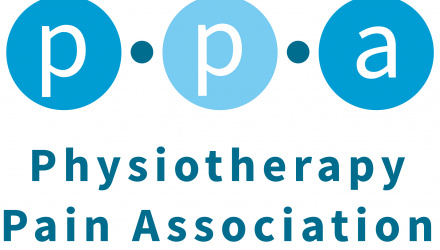Dear clinician
Do you remember me? I haven’t seen you for over 8 years, but I remember you. I was the person who dissolved into tears when I talked about my fears of a future living in pain. I expect you see many people like me.
You told me I had sciatica, and you showed me a model of a spine and explained my problem was a bulging disc, but you didn’t explain anything to me about pain, and how complex it is. You didn’t help me understand neuropathic pain, and what was going on in my body. You didn’t help me understand that who I am and what I do day to day affects my pain. You didn’t help me learn to self-manage my pain.
When you first saw me I was in so much pain that I couldn’t sit down in your waiting area. Your receptionist kindly let me lie down on a treatment bed to wait for you. You knew I could barely walk, but you didn’t help me get back to walking again. You knew I couldn’t sit down without excruciating pain, but you didn’t help me work out ways to sit with reduced pain. I desperately needed help to walk and sit down, but you didn’t help me. Isn’t that part of your role?

Instead you taught me some core exercises and did some manual therapy on me. Do you really think when I was struggling to walk, get dressed and sit down core exercises were enough? I’ve often wondered why you taught me core exercises rather than focussing on my function, self-management and understanding. Is it because that is what is ‘normally’ done with patients who have back pain and sciatica? Was it just what the ‘guidelines’ and ‘research’ dictated? But was I really a typical back pain/sciatica patient? Shouldn’t I have been treated as the individual that I was?
I came to you after being in hospital for 5 days. They had put me on a range of strong pain killers, including liquid morphine. You asked me what pain medications I was on, and at times you suggested going back to my GP to vary them, but you didn’t help me understand the long term consequences of being on such high levels of opioids. You didn’t help me understand that I could self-manage my pain without the use of medications, or at least use less medications. I needed to know that there are other ways of managing pain apart from medications and injections, but you didn’t tell me or help me understand. Was I supposed to work this out for myself?
Do you remember showing me my MRI scan, and explaining that a part of my disc had broken away? You showed me where the broken bit was, but you didn’t tell me that it would be re-absorbed by my body. For years I worried about what damage this floating bit of disc might be doing in my body as it moved around! You told me that my disc had likely prolapsed because on my MRI you could see that my core muscles were small and weak! Why did you say that? You can’t tell that from an MRI! For years I felt guilt and shame that I had caused the pain I was in, and that was having an impact on my work and family life. That it was my fault because I hadn’t been fit enough before the accident. Those words stayed with me, and I’m not sure even now when I understand things better that they have left me. Do you not realise how powerful and damaging the words you use can be?

Looking back, I realise how stupid I was going back to my job as a teacher so quickly. I could barely walk, couldn’t stand still for long, was in excruciating pain sitting down, on high levels of pain medication (including morphine) and generally in a bad way. I was lucky that I was allowed to work reasonably flexibly, but I would have been even luckier if I had been advised to stay at home a while longer. You told me that research said that if people don’t go back to work quickly then they will probably never go back. But that was research about back pain, not sciatica. You told me in such an authoritative way that I believed that would happen to me. I guess you tell all your back pain / sciatica patients the same. You didn’t seek to understand me. The fear of a life with no further work was a main factor in me deciding to go back to work quickly. If you had taken the time to get to know me a little better, and how my condition was affecting me a little more, you may well have given me different advice. I was a highly driven individual that needed to put some focus on my health condition rather than work for a while. I wasn’t in a fit state to work, but went back to work fearing that if I didn’t I never would. I look back now and realise that would never have happened – I would never have not gone back to work. That’s just not who I am. Why didn’t you take the time to get to know me a little better before telling me such things?
I came to you as a naïve patient. I had experienced very little healthcare before. I am sure I entered your clinic submissively, after all that is what my parents had taught me to do, and society had led me to believe I should do. I thought that as long as I did what you asked me to do then you would ‘fix’ me. You maintained this imbalance of power. You didn’t get to know me as a person, you weren’t genuinely curious about who I was and how my condition was affecting me. You didn’t empower me to take a less submissive role, and you didn’t treat me like an equal partner. Any decisions made were fundamentally yours. Yes, I might have been the person who ‘agreed’ these decisions, but they weren’t really my decisions, they were yours. You didn’t give me sufficient, well balanced information to be able to make those decisions. You didn’t empower me to be an equal partner in my care.
I appreciate that with the high levels of pain I was presenting with, and sometimes distress, that it must have been difficult to work out what to do with me, but isn’t that your job? Why did you keep discharging me to wait for an MRI, or wait for an injection? Why didn’t you treat me whilst I was waiting for those things? Why didn’t you arrange for some continuity of my care? If you felt you needed to wait for an MRI why didn’t you book a follow up appointment with me afterwards? Why did I have to see so many different clinicians, who didn’t talk to each other and repeated treatments that hadn’t worked for me before? Why didn’t someone co-ordinate my care? Why didn’t you play your part in making sure someone did?

I’ve often wondered why I was treated ‘conservatively’ for 15 months before I was referred to a spinal surgeon. That was clearly far too long. The writing was on the wall that I would need to be offered surgery well before 15 months. Did you play a part in allowing that phase to go on so long? Could you have done something to ensure I was properly reviewed before 15 months? Could you have done more to get me to see a spinal surgeon quicker?
I don’t understand why you didn’t make it clear to me from the beginning that there may well not be a ‘fix’, and that I may live in pain for the rest of my life. I don’t understand why you didn’t teach me to understand my pain condition right from the beginning and support me in learning to self-manage my pain. I don’t understand why all the interventions were ‘Bio’ ones and the ‘Psycho-Social’ elements were ignored. I don’t understand why I wasn’t helped to improve my function and independence. I don’t understand why you didn’t request an OT assessment or talk to any other professionals involved in my care. I don’t understand why you gave me ‘routine’ care, that was probably much the same that you gave to all of your ‘sciatica/back pain’ patients. I simply don’t understand why you didn’t treat me as the individual I was.
Do you remember that after a few years I expressed my concern that I was lop-sided and I asked if you could help me do something about it? I was standing leaning on my left leg because of the pain in my right. Whenever I sat down, I leaned across to my left so my right buttock had less contact with the chair. I instinctively knew that continuing to do everything in such a lop-sided manner was going to cause me long term problems, but I didn’t know how to resolve it. I know I asked you for help with this because you wrote it down as one of my personal goals, but you then ignored my goals and inserted your own instead. You taught me core exercises again! Why?
At the time I thought you were doing everything you could for me. I liked that you gave me stick pictures of the exercises you were asking me to do. You obviously cared about me and were always pleasant and nice to me. But looking back it wasn’t enough. You could, and should, have done much more.

I desperately needed a more person-centred approach. I am convinced that with that approach then even if my nerve damage could not have been avoided, you would have been able to help me to live well, and better manage my pain right from the start. I am sure that you could have helped spare me a great deal of unnecessary suffering, and a lot of medical interventions.
I’m not a ‘routine’ or ‘typical’ patient. I don’t want to be viewed as part of a ‘cohort’ of patients with the same diagnostic label, eg prolapsed disc, sciatica or low back pain. There is no patient the same as me in the world, and there have been no research trials carried out on me. I have other co-morbid conditions, and my social, genetic, biological, psychological and other circumstances are unique to me. There is no research that can give an accurate prediction of my outcomes with any particular treatment option.
I did want research evidence to be utilised as part of the decision-making in my care but I needed you to consider it in a realistic and balanced way. I needed my narrative to be listened to, and for my individual presentation and circumstances to be centre stage. I needed you to empower me to play my part in genuine shared decision-making with you. I needed good person-centred, evidence based healthcare. The care you gave me was ‘routine’.
After four years of receiving ‘routine’ care I experienced an episode of better, more ‘person centred’, evidence based healthcare from a physiotherapist. He treated me as a unique individual, both in terms of who I am and my presenting medical condition. I was no longer a ‘routine’ patient with ‘routine’ care. I’m pleased to say that this person-centred episode of care transformed by ability to live well with my persistent pain condition. But you could have done that!
I will live in daily persistent pain, sometimes severe, for the rest of my life. It is with great sadness that I say I don’t know whether some of this could have been avoided if you had given me better, earlier, more person-centred, evidence based, healthcare.
Although I am grateful for the help you gave me, you could have done so much more.
Tina
www.livingwellpain.net
@livingwellpain
This letter was written by me to form part of course materials for a training course on Psychologically Informed Practice being developed by the Physiotherapy Pain Association (PPA) and Health Innovation Network (HIN).
(With permission for me to share)

Physiotherapy Pain Association
www.ppa.csp.org.uk
@PhysioPainAssoc







Brilliantly written, really informative piece. My persistent pain journey has been somewhat different but completely agree that treatment has to be individualised and person centred.
I accept that persistent MSK pain is a phenomenon with common characteristics and that it’s important to learn self-management techniques. But I’m also someone who’s condition consists of a unique basket of overlapping and interconnected problems which need to be assessed and treated sensitively and strategically.
Having a dedicated clinician who understands you and your condition, builds a therapeutic relationship and is in it for the long-term, is what I feel I need as a persistent pain patient and I think many of my peers feel the same. Sounds like that’s what you have got now Tina, which is brilliant and shows that it is possible within the NHS, despite budgetary constraints.
Thank you Mark 🙏🙏🙏
I totally agree with you about the need for someone who understands you and your condition and is in it for the long term with you, and yes, thankfully I have that now. It definitely is possible within the NHS, I just think it needs a slightly different approach from clinicians.
Thank you again 🙏🙏🙏
Tina
Very powerful, very compelling. Such a brave and hopefully cathartic outpouring. This needs to be shared far and wide, from student to specialist to surgeon. I totally applaud you and thank you for sharing.
Thank you so much 🙏🙏🙏
Yes, it was very therapeutic writing this. I can’t quite believe that after so many years the emotions involved are still there!
Thank you for your kind words…
Tina
Thanks Tina. This is so powerful it really should be compulsory reading for all health care professionals working with people with pain ( so that’s pretty much everyone) I am so sorry that we failed you and it took far too long for you to see a physio who saw the person behind the sciatica & actually did use ‘person centred care’
Thanks Eve – I really appreciate your comments. This post was very much written from the heart – very cathartic writing it! I hope it will help some clinicians realise the importance of person centred care – I certainly do 🙂
Tina
Thank you Tina. The article transmits the roller coaster of emotions that the individual experience whilst dealing with pain and trying to make sense of the healthcare journey. It certainly is very complex and very different for each person as clearly exemplified on your text. Thanks
Thank you Felipe – yes, you’re exactly right, it is a roller coaster of emotions, and a roller coaster that changes but seemingly never stops.
Thank you for your thoughts – much appreciated 🙂
Tina
Hi Tina,
Thanks for sharing your experience, I genuinely feel for you. You clearly received sub optimal treatment to say the least. For instance, lack of core strength from an MRI is just unacceptable. Like you , I don’t buy into that whole concept of core stability. I am against any form of dogma.
Hope you don’t mind me asking this, purely from a point of principle , who is ultimately responsible for your care? Is it the treating clinician or the wider system to blame or is it is the policy makers? I think they are three separate entities.
I am not for one second excusing for those involved in your care, but are you sympathetic to their working conditions ( inflexible diary template, lack of their authority to amend clinic timings according to the individual need of patients and lack of training/supervision/exit routes etc etc)?
I would argue an average clinician want to do the best of their patients, but they are constrained by many invisible things, if so, in principle, can we blame them for the shortcomings?
Too many questions. Sorry Tina. I would love to hear your thoughts, please note I am asking this with an open mind.
Thanks
Naveen
Eye opening post,
It truly shows the struggle of pain and the long journey to coping with it.
I had an accident in 2009, over the next 2 years multiple surgeries, bone infections and lots of pain.
Now 11 years later I am still in constant pain.
The doctors are happier to give out ever increasing opioids.
The pain clinics I have fought to get a place at drop me off their lists as soon as possible without informing me to start the 1 year cycle again.
Every time I tell someone about my journey I well up in tears, even now as I type this.
Is it the pain causing these emotions or my journey?
I will look through this web site for some inspiration.
Currently I use 2 weeks on opiates and then 1 week on kratom.
Thank you for your kind words, but sorry to hear you have had difficulties with pain too. It’s really interesting, often when I talk to clinicians about my journey I also well up in tears. Have you tried writing about your journey – it helped me a lot to do so.
Hoping you get into the pain clinic soon. 🙂
With best wishes
Tina
While I don’t have exactly the same condition, I do live with chronic pain. After my consultant ruled out anything life threatening, he never told me I may have to live with the pain for life. I clung onto a cure; a pill, an operation, a treatment, things that really don’t exist. Sleepless nights, leading to sleep deprivation and depression. Things he never discussed. Never referred me to a mental health professional. Things got worse. I spiraled downwards. Every time I called him, he gave me another painkiller. Simply awful treatment. Thank you for writing this.
Thank you, Tina. Your words could have come from my mouth. And they have done over the years. You have told the story of so many people suddenly thrown into the maze of the health system with faith in their practitioners to guide them the direction of healing. This letter should be compulsory reading in medical school. Thanks again.
Thank you Tina for sharing my journey & putting the Words in my mind in black & white, you have really inspired me to Wright down how I feel about my experience with professionals, I understand they have so many targets to hit & boxes to tick, it’s difficult for them to have the time to see us as people & realise our lives are often literally in their hand & their words or avoidance of explanations can have a profound effect on our lives, we look up to the gps, consultants as we been taught that they know best ,we look to them for reassurance, honesty, & direction. As you say Tina we are all unique & we don’t all fit into the same shaped box. I-am so grateful Tina for you writing your letter & I will share it with a sense of pride & sense of me too & at the top of that & most important is that it may help another patient or professional understand
Thank you Flora and I am so pleased it has helped you too, I found it really therapeutic writing it!
Wishing you all the best
Tina
“Dear Clinician” is so powerful. Thank you for sharing your experiences. They resonated deeply with me as I too have had a long journey with pain and many on-going difficult encounters with health services feeling that treatment options were greatly lacking and mainly focused on adding yet more medication to the exiting cocktail. The impact it has physically, emotionally, mentally, and on wider life, work, family and friends is immense, yet overlooked. Treating the person as a whole using a biopsychosocial approach and providing accessible, on-going, person-centred care is so important.
Thank you for sharing your experiences, so much resonates even though my diagnosis is different, – I have MS. So many times it is used as the excuse for everything. Clinicians define me without bothering to find out who I am.